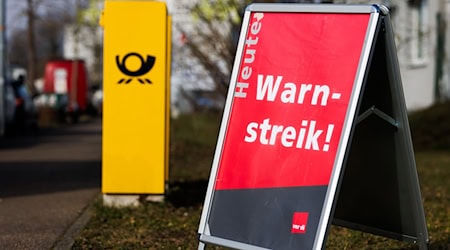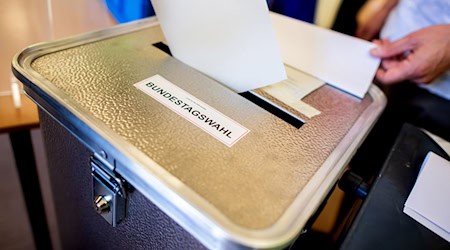Deutsche Post operates fewer branches in Saxony than it should. In July, there were eight so-called unoccupied mandatory locations, the Federal Network Agency announced in response to a dpa query. Dresden-Bühlau, Dohna, Hochkirch, Rötha, Partenstein, Zschepplin, Langenbernsdorf and Chemnitz-Rabenstein are affected. According to the data, there were 141 unoccupied mandatory locations across Germany in July, 16 more than in February.
A legal rule states that the post office must have at least one branch in municipalities with more than 2,000 inhabitants. In municipalities with more than 4,000 inhabitants, the distance to the branch in contiguous residential areas must not be more than two kilometers.
Of the eight unoccupied mandatory locations in Saxony, two locations, Dohna and Hochkirch, still have a vending machine - so it was definitely possible to use postal services there. Zschepplin is also set to receive a machine in the next four months. Chemnitz-Rabenstein will reportedly have a branch in the next six weeks.
With just under 13,000 post offices - mostly kiosks and other retailers with post office counters - the Bonn-based company has a strong nationwide presence, exceeding a state obligation of 12,000 branches in total. But in rural areas and on the outskirts of cities, the Post does not always comply with the distance rules.
Structural change in rural areas is a problem
In October 2023, there were reportedly only 73 unoccupied mandatory locations, which is only around half as many as in July of this year. However, there is no discernible trend, rather the figure has been fluctuating for a long time - in January 2023, there were 174 more than recently.
The reason for the logistics provider's difficulties is the structural change in rural areas: if the last supermarket or grocer closes down in a village and no other retailer is available as a partner, the store location remains unoccupied. Sometimes it simply takes a while before a partner is found after all.
A Post spokesperson pointed out that setting up branches "is very challenging, especially in rural areas with a poor retail infrastructure, and we always have to reckon with branch partners going out of business". It is therefore not unusual that the number of vacancies has increased. "We will continue to work at full speed and in close dialog with the mayors in the municipalities concerned to be present at all 'mandatory locations'," said the spokesperson for DHL, whose national mail business operates under the name Deutsche Post.
Automats will become more important
The problem is likely to be alleviated next year. This is because new rules of the Postal Act, which was recently amended, will come into effect at the turn of the year. Then, under certain circumstances, so-called postal stations will also count towards meeting the mandatory requirement, which is not currently the case. Stamps can be purchased, parcels franked and letters and parcels handed in at postal stations, and there is also a video consultation service. One advantage is that the machines are available around the clock, whereas customers at post office branches have to adhere to opening hours.
Of the 141 unmanned mandatory locations in July, 27 locations had a machine - so it was definitely possible to use postal services there. This shows that the figure is likely to fall in the coming year. However, Swiss Post has to coordinate with local authority representatives and needs the approval of the Federal Network Agency to count a vending machine towards the branch obligation. It would come as a surprise if the agency were to take a stance on the issue: Its head Klaus Müller had recently spoken positively about the vending machines in principle.
Copyright 2024, dpa (www.dpa.de). All rights reserved










